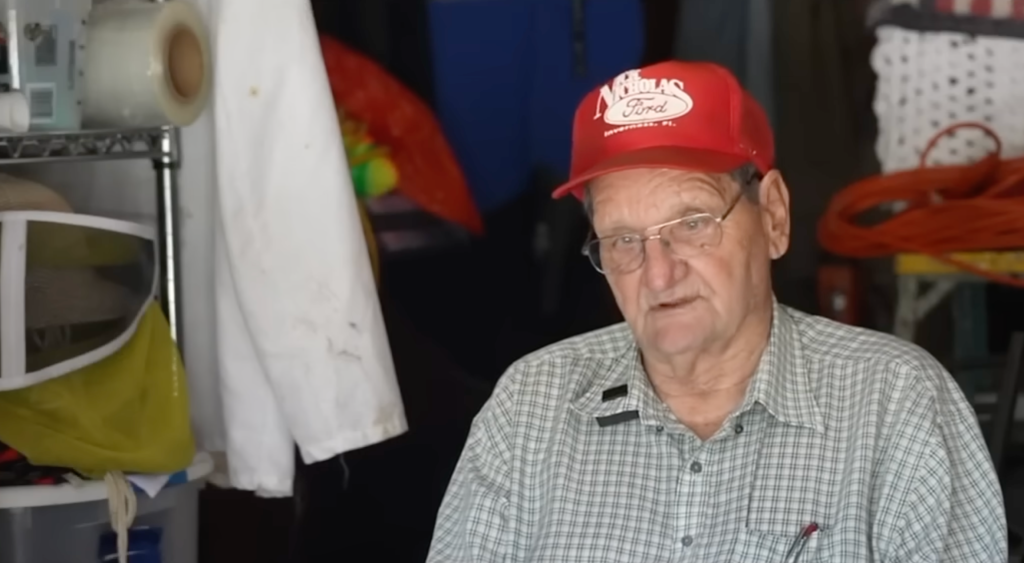
Richard Marquette spent decades tending his bees — tiny workers that kept his Citrus County property buzzing and his bank account afloat. But when the 84-year-old beekeeper stopped by his vacant lot in late July, something felt off. His main source of income had simply bee-lined out of there.
Must Read
- Thanks to Jeff Bezos, you can now become a landlord for as little as $100 — and no, you don’t have to deal with tenants or fix freezers. Here’s how
- Robert Kiyosaki says this 1 asset will surge 400% in a year — and he begs investors not to miss its ‘explosion’
- Dave Ramsey warns nearly 50% of Americans are making 1 big Social Security mistake — here’s what it is and 3 simple steps to fix it ASAP
Twenty hives — about two million bees and anywhere from $8,000 to $16,000 in honey per harvest — vanished. Every box had Marquette’s initials, his state registration number and the honey he was counting on to get by while he’s on medical leave from his Walmart job sealed inside.
Instead of bees, Marquette found contractors cutting down trees nearly 50 feet inside his property line. When he asked what happened to the hives, he was told they’d been “moved” by someone claiming to own the land.
"How can somebody come on my property and take my bees and not return them and not be sorry?" Marquette told Tampa Bay 28 (1).
Where did the bees go?
When the Citrus County Sheriff’s Office stepped in, deputies traced the missing hives to Joseph Denick, the man who purchased the lot next to Marquette’s. According to the incident report, a land-clearing crew mistakenly crossed onto Marquette’s side of the property line and Denick admitted he told a friend to remove the hives.
He also told deputies he was willing to return them. But more than 90 days later, the bees still haven’t come back. Beekeeping experts estimate that each hive can generate $200 to $500 a year, depending on where the hives are located, how they’re managed and local demand for honey and bee products.
"The sheriff’s department’s closed the case and I’m out my money and my work and the honey crop and future honey crops," Marquette said.
When reached for comment, Denick acknowledged posting on Facebook offering the hives to anyone willing to pick them up. He said a “friend of a friend” ultimately took them though he wouldn’t say who. He declined an on-camera interview from Tampa Bay 28 and says he planned to address the issue through the courts.
Trending: Approaching retirement with no savings? Don’t panic, you’re not alone. Here are 6 easy ways you can catch up (and fast)
A livelihood lost
Marquette has kept bees since he was 10 years old long before side hustles became the financial lifeline they are today. And he leans on his hives the same way millions of Americans do: to close the gap when life doesn’t quite add up.
A 2025 PYMNTS Intelligence report found that 41% of U.S. consumers earn supplemental income, a number that jumps to about 50% for people living paycheck to paycheck (2). So when his operation vanished, it wasn’t just inconvenient. It was destabilizing. With honey selling for $20 a quart and a single hive producing up to 40 quarts a season, losing his bees meant losing a crucial stream of income he can’t easily replace.
"I can’t figure out why they won’t bring them back or at least pay me for the bees or whatever, but I haven’t been able to get anything," Marquette said.
For anyone who relies on their property or the equipment on it to earn supplemental income, experts say the first steps matter: document everything, confirm your property boundaries and report unauthorized work as soon as you notice it. If the loss affects your ability to earn, consulting an attorney can help you pursue compensation that goes beyond replacing physical items.
Marquette is already taking that route. Attorney Andy Lyons sent Denick a letter giving him seven days to respond, arguing the damage isn’t limited to lost honey sales.
"His ability to earn a living for an entire year or more has been destroyed by this, and of course the damage to the bees themselves, the queens that were in the hives, the whole ecosystem that surrounds them was wiped out in a day," Lyons said.
Marquette lost up to two million bees, a blow with environmental consequences, too. Honeybees help pollinate roughly a third of the food crops we rely on, yet they’re consistently threatened by mites, disease and pesticides.
If Denick doesn’t cooperate, Marquette plans to take further legal action to recover the hives and equipment.
As for the honey he can no longer harvest: “Same thing as gold,” Marquette said. “Especially when you need it.”
What to read next
- Grant Gardone reveals the ‘real problem’ with US real estate (and what average Americans must actually do to get rich)
- Warren Buffett used 8 solid, repeatable money rules to turn $9,800 into a $150B fortune. Start using them today to get rich (and stay rich)
- Dave Ramsey says this 7-step plan ‘works every single time’ to kill debt, get rich — and ‘anyone’ can do it
- 22 US states are already in a recession — protect your savings with these 10 essential money moves ASAP
Join 200,000+ readers and get Moneywise’s best stories and exclusive interviews first — clear insights curated and delivered weekly. Subscribe now.
Article sources
We rely only on vetted sources and credible third-party reporting. For details, see our editorial ethics and guidelines.
Tampa Bay 28 (1); PYMNTS (2); PubMed Central (3)
This article provides information only and should not be construed as advice. It is provided without warranty of any kind.